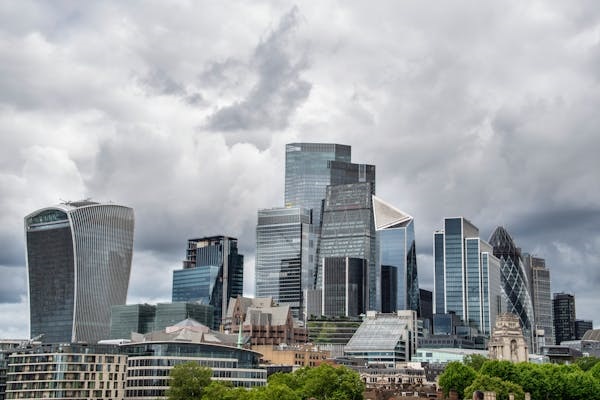Fund groups overwhelming anticipate the new Labour government's policies will enhance UK economic growth, at a time when many have already upgraded their GDP growth forecasts, According to Quilter Investors’ latest Investor Trends Survey.
More than two thirds (69%) of respondents expect Labour’s policies to enhance economic growth, while three in 10 (31%) saw little impact and no respondent believed they would reduce economic growth. The respondents said political stability and the subsequent attractiveness to overseas investors was likely to be a main driver for this expected growth.
The survey also revealed a sense from fund groups that following a short, shallow recession at the end of 2023, green shoots are beginning to reveal themselves in the UK economy. With inflation back at target and interest rate cuts now being enacted, fund groups are upping their forecasts for UK growth in 2025. The weighted average predicted growth rate is now 1.22%, up from 0.98% when surveyed last quarter.
Having been surveyed prior to the Bank of England’s interest rate cut earlier this month, fund groups believed August was the most likely month for that first cut, with it being given a 41% probability. In the US, respondents appeared to be settling on September as the first rate cut, with it being given an implied probability of 55%. Following recent market movements, this now appears to be the most likely scenario.
However, although rate cuts are now firmly on the agenda, there is little consensus view in the UK for where interest rates will sit by the end of 2025, with views ranging from 2.5% to 4.5%. This is mirrored for the eurozone, while for the US nearly half of respondents (46%) saw the range between 3.76% and 4.25%.
Looming over this path for interest rates remains inflation. Nearly half (47%) of respondents expect UK CPI to end the year between 2.51-2.85%, significantly higher than where it is now. Meanwhile, two thirds expect it to remain well above the 2% target level by the end of 2025. Similarly, in the US slow declines in inflation has made more come to the conclusion that it will remain above target there too, with 80% expecting it to be more than 2.21% next year, up from 69% at the last survey.
Meanwhile, with the US Presidential Election looking finely balanced, survey participants were asked about their views on the impact of increased trade tensions between the US and China. Half of the fund groups surveyed saw increased tariffs as a positive for emerging markets outside of China, with only one in seven (14%) believing them to be negative. Mexico was seen as one of the biggest beneficiaries of such an event as it would look to bring as much of the supply chain to the US border as possible.
The survey is carried out on a quarterly basis with leading fund managers covering forecasts for macroeconomic data and timely indicators.
Lindsay James, investment strategist at Quilter Investors, said: “The Labour Party and the City have not always been natural partners, but given the economic inheritance received following the general election win, Chancellor Rachel Reeves has done a lot to instil a level of confidence in the new government.
"While things are supposedly worse than expected, fund groups clearly think Labour will help stimulate economic growth, at a time when the UK’s fortunes appear healthier than they have been. Labour was coy with what it had planned, but markets crave stability. With such a large majority, investors clearly believe Labour does now offer that assuredness, despite the numerous tax rumours, and can bring back overseas investment.
“Meanwhile, despite the Bank of England cutting recently, interest rates remain increasingly difficult to predict, with many investors now pinning hopes on September for the Federal Reserve’s first rate cut in the US. With market volatility now hitting and fears of a slowing economy, this appears to be a realistic possibility.
James continued: “But what happens afterwards is a source of contention. In the UK, we have a wide range of forecasts, mirrored in the eurozone. In the US, however, it is expected that slowing but still good economic growth will keep a lid on the rate cuts, with inflation likely to remain persistently above the 2% target at the end of next year.
“Finally, the upcoming US election has many fascinating outcomes that investors will be watching closely. Clearly, a Donald Trump presidency, emboldened with J.D. Vance as his deputy, will result in further tariffs on Chinese products, as he seeks to protect American industries. However, this may provide a boost to other emerging markets, suggesting China’s recovery is not quite ready to be played out.”










